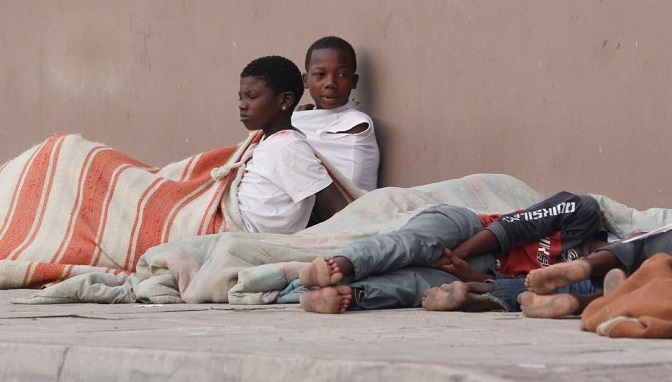Dr. Ernestina Tetteh, Convener of the Coalition for Street-Connected Children Organisation, has attributed the persistent rise in the number of children begging on the streets of Ghana’s major cities to poor strategic planning and a lack of continuity in intervention efforts.
Her comments follow increased sightings of children—often accompanied by adults—soliciting alms in urban centres. In many cases, an adult, typically the child’s mother, can be seen monitoring the child from a distance to avoid detection.
Speaking on the Citi Breakfast Show on Thursday, May 8, 2025, Dr. Tetteh highlighted the unsustainable nature of past interventions, which were mostly dependent on short-term donor funding.
“Our engagement with the social welfare over the years reveals that they worked with some embassies in the past, and they had some funding to take their nationals away, that was the approach. There was some engagement and discussion, and they got some children and sent them away, but they made their way back,” she said.
“You know how donor-funded projects work, once the funds are finished, the project ends. Once the first attempt was made and it wasn’t continued, we were back to where we started.”
Dr. Tetteh criticised what she called a “knee-jerk approach” to the issue, arguing that treating the children as a security threat without long-term solutions has failed.
“We used the knee-jerk approach; ‘they are a security threat so let’s bundle them and send them away, but they are back’. Even with the local ones. So, there is no strategy,” she noted.
She also stressed that the lack of reliable data continues to hamper efforts to address the issue effectively.
“Statistics are hard to come by; we only know that the numbers are growing by the day. They usually come from Chad, Niger.
“We also know, even though we don’t have evidence to show, that there are syndicates that coordinate their entry into the country. We have seen cars come in where they bring children into the country.”
Dr. Tetteh added that even outreach efforts face resistance due to adult supervision.
“Even if you want to get the children to talk to you or come with you, they do not want to follow you. And it is because there are adults sitting in one corner, overseeing them,” she said.
120 Days: ‘I take my promises seriously, my word is my bond’ – Mahama
